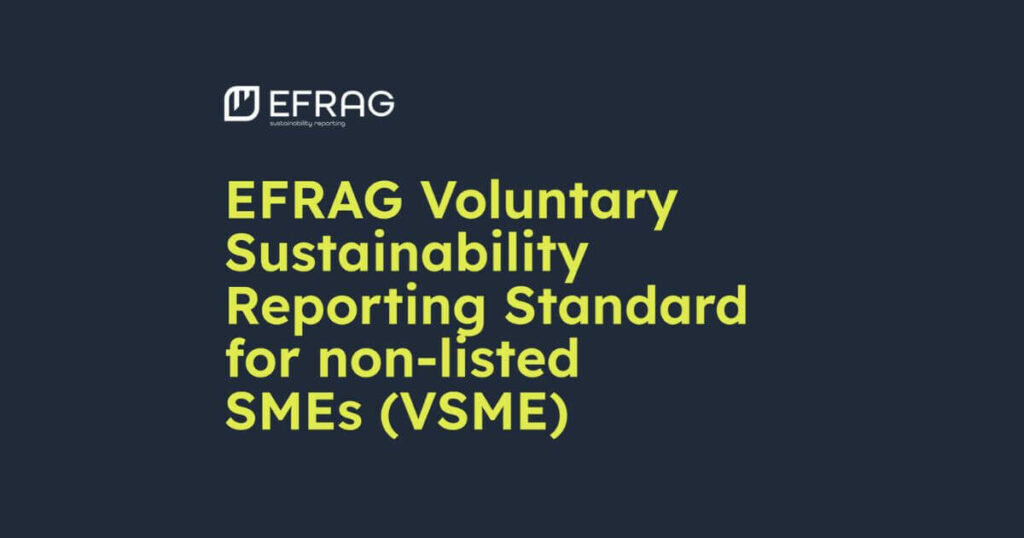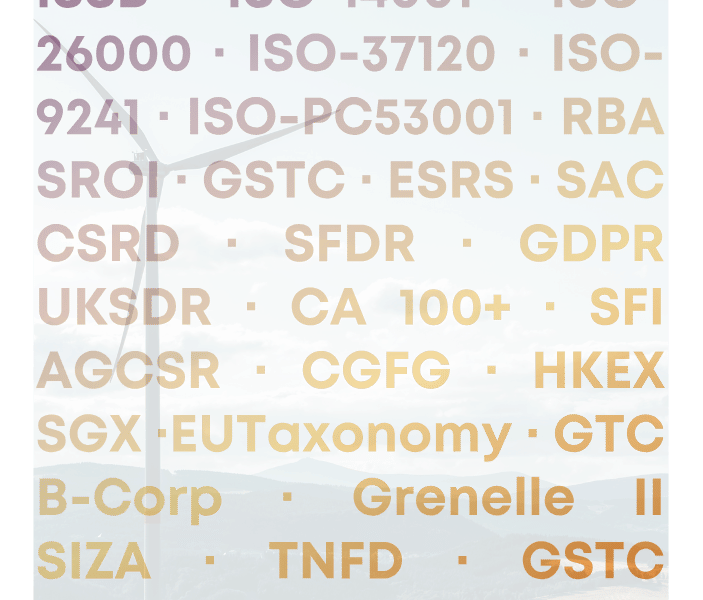The European Commission adopted a Recommendation introducing Voluntary Sustainability Reporting Standard for SMEs (VSME). It’s designed to cut admin burden by giving small and medium-sized businesses a simple, common way to answer sustainability data requests from large companies and financial institutions subject to the CSRD. The Commission also encourages requestors to base their questionnaires on this standard “as far as possible.”
The VSME was developed by EFRAG, the Commission’s technical adviser on sustainability reporting. EFRAG delivered the VSME in December 2024, and on 30 July 2025 welcomed the Commission’s Recommendation.
Why this matters
-
One set of questions, many requestors. VSME is meant to replace a patchwork of supplier questionnaires with a common baseline, easing the “trickle-down” of data demands from larger companies.
-
Optional—but strategic. SMEs can use it to improve access to finance and to understand their own performance and risks. The Commission also signals work toward a future delegated act creating a voluntary standard for firms up to 1,000 employees (as part of the 26 Feb 2025 “omnibus simplification” proposal).
What’s inside the VSME
-
Two modules: a Basic module (the minimum requirement for small/medium firms; a target approach for micro-enterprises that can use parts only) and a Comprehensive module (builds on Basic).
-
Self-declaration (no assurance required) for non-listed SMEs.
-
Proportionality + value-chain practicality: requestors are asked to limit asks to what VSME covers; Member States are encouraged to support uptake and digitalisation (e.g., exploring eInvoicing data extraction).
-
Looking ahead: links to ESAP (European Single Access Point) publication in future and support via the 2025 Technical Support Instrument to help Member States build digital tools.
Full legal basis and annexes: Commission Recommendation of 30.7.2025 on a voluntary sustainability reporting standard for SMEs, C(2025) 4984 final.
How Sustainable Intelligence helps SMEs — fast, practical, human-centered
We’ve mapped the VSME to our toolset so you can get value quickly without building a reporting team.
1) VSME QuickStart (2–3 weeks typical effort on your side)
-
Rapid readiness check against the Basic module; highlights “must have” vs “nice to have” items for your size (micro/small/medium).
-
Data inventory using what you already have (invoices, utility bills, payroll, supplier lists).
-
Clear, human-readable action plan prioritised by cost/benefit and risk.
2) Data, not paperwork: automation where it counts
-
SyncFrame / SyncFrame O/S (edge-AI): pulls structured data from systems you already use (ERP, e-invoicing, energy meters) and aligns fields to VSME disclosures; edge processing protects data sovereignty.
-
Smart evidence locker: keep policies, certificates, and calculations tied to each disclosure. Built for self-declarations today and assurance-ready later.
3) Supplier & lender-ready outputs
-
Generate a VSME-formatted pack your buyers and banks can use directly (summary + data tables + evidence pointers).
-
For buyers: we provide a VSME-aligned request template and portal so you don’t send dozens of bespoke questionnaires to your SME suppliers—exactly what the Commission encourages.
4) Finance enablement
-
Translate your VSME data into the metrics lenders often ask for in sustainable finance products, with clear assumptions and traceability. (The Recommendation notes that lenders may still request additional information for specific products; we prepare you for those asks.)
5) Future-proof publishing
-
When ESAP becomes available for SMEs, we can package the needed metadata/format so your sustainability info is discoverable by investors.
6) People-first enablement
-
Short, role-based training for owners, finance leads, and ops teams—focused on decisions and processes, not jargon.
-
Change-light workflows designed for small teams (or a single founder-CFO).
What SMEs can do right now
-
Decide your module: Basic module first; add Comprehensive only if stakeholders ask or you see a finance/market benefit.
-
Inventory the easy wins: energy, travel, waste, key suppliers, and existing policies (health & safety, code of conduct).
-
Standardise your responses: use VSME structure to answer buyers and banks—avoid one-off forms where possible. (The Commission explicitly encourages requestors to align to VSME.)
Notes for large buyers and financial institutions
If you’re collecting data from SME counterparties, the Commission recommends limiting requests to the VSME content “as far as possible.” Adopting VSME-aligned asks reduces friction and improves data quality across your value chain and portfolios. We can help you roll out a VSME-based intake at scale.
Governance and the road ahead
The Recommendation sits alongside the omnibus simplification proposal (26 Feb 2025) that would narrow CSRD scope to firms >1,000 employees and provide a voluntary standard by delegated act for others; it also contemplates extending the value-chain cap logic. Timing depends on co-legislators. We monitor this and keep your templates current.
Source documents & official explainers
-
Commission press material on the VSME Recommendation (30 July 2025). FinanceEuropean Commission
-
Commission Q&A on the Recommendation and the simplification package. Finance
-
Commission Recommendation C(2025) 4984 final and annexes (VSME content, modules, digitalisation, ESAP, self-declaration). European Commission
-
EFRAG materials on the VSME (delivery Dec 2024; welcome note 30 July 2025). EFRAG+1



